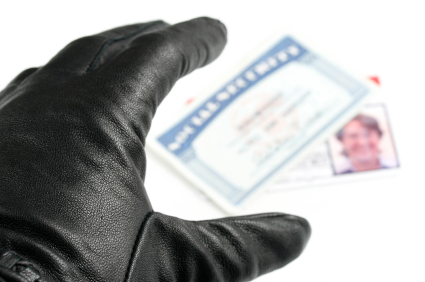Posts Tagged ‘The Identity Advocate’
How to Prevent Medical Identity Theft As Healthcare Reform Rolls-Out
 The launch of healthcare reform begins in October 2013 and has many people worried. Unfortunately, this concern isn’t just about the Affordable Care Act itself. Identity theft experts warn that the already high instances of medical identity theft are set to explode, especially as millions of Americans start looking for insurance options.
The launch of healthcare reform begins in October 2013 and has many people worried. Unfortunately, this concern isn’t just about the Affordable Care Act itself. Identity theft experts warn that the already high instances of medical identity theft are set to explode, especially as millions of Americans start looking for insurance options.
They have reasons to worry. Medical identity theft affected 1.85 million Americans this year at a cost of $41.3 billion, according to the Ponemon Institute. As the opportunities for medical identity thieves increase, many more Americans can expect to become targets. The Federal Trade Commission received over 83,000 fraud complaints in 2012 regarding “imposter scams,” in which identity thieves pose as representatives of government agencies to collect personal information. Officials expect these numbers to grow exponentially once the Affordable Care Act begins to roll-out.
The Threat of Healthcare Fraud and Medical Identity Theft
There is a lot of confusion regarding the Affordable Care Act. Signed into law in 2010, enrollment through the healthcare “exchange” begins on October 1, 2013 for coverage starting January 1, 2014. Consumer confusion about the implementation of the law has allowed identity thieves to get a jumpstart on stealing medical identities using information such as Social Security numbers, addresses, Medicare account information, medical history, and other private information.
Gaining access to this information enables identity thieves to fraudulently receive medical care, purchase prescription medications, order medical supplies, and submit false insurance claims—among other forms of healthcare fraud. Although anyone can be a target of medical identity theft, people with the highest risk of fraud include senior citizens, individuals who don’t speak English, and those who have never had insurance coverage or have experienced a lapse in coverage.
 One of the latest healthcare reform scams and medical identity theft occurs when a scammer contacts someone and tells him he’s been selected for early enrollment. The scammer poses as a federal employee and tells him that he must supply his personal and financial information, including bank account data, to receive his insurance card. What most consumers are unaware of is that there are no insurance plans or cards directly associated with the Affordable Care Act. Insurance companies, not the federal government, provide these cards, so beware of anyone who asks for this information.
One of the latest healthcare reform scams and medical identity theft occurs when a scammer contacts someone and tells him he’s been selected for early enrollment. The scammer poses as a federal employee and tells him that he must supply his personal and financial information, including bank account data, to receive his insurance card. What most consumers are unaware of is that there are no insurance plans or cards directly associated with the Affordable Care Act. Insurance companies, not the federal government, provide these cards, so beware of anyone who asks for this information.
Preventing Medical Identity Theft
Although some medical identity theft is inevitable with the Affordable Care Act, there are ways you can protect yourself and limit the chances of becoming an identity theft victim:
- Be proactive to prevent medical identity theft by signing up for an identity theft protection service such as ID Theft Solutions.
- Never provide or verify personal information over the phone, even if the caller claims to be a federal employee. Federal agencies already have this information on file, so you will never be called to supply it.
- Don’t automatically believe a caller ID screen indicating that a state or federal government agency is calling. Scammers have the latest technology and can display a government agency’s name on your caller ID.
- The government does not send unsolicited emails to request personal information. It only sends correspondence through U.S. mail. You can check the authenticity of a letter by looking up the agency’s phone number yourself and calling it for verification.
- Government employees do not make house calls, nor will they show up at your door requesting information or selling Affordable Care Act-related healthcare plans. Again, legitimate federal employees would already have your information on file.
The best way to prevent medical identity theft as healthcare reform goes into effect is to be aware of the warning signs, stay vigilant, ask plenty of questions, and never hand over your personal information. You can also take advantage of the tools, resources, and advice to avoid medical identity theft by visiting the experts at The Identity Advocate at www.TheIdentityAdvocate.com or by calling 310.831.4400.
Mobile Identity Theft Threats and Prevention Tips
Mobile identity theft is one of the fastest growing types of identity theft due to the prevalence of mobile devices such as smartphones and tablets. With over one billion smartphones being used globally and research predicting this number will double by 2015, the soaring sales of mobile devices come at a time when identity theft is at an all-time high.
There was one victim of identity theft every three seconds in the U.S. in 2012, totaling 12.6 million consumers—an increase of over one million victims compared to the previous year and accounting for more than $21 billion, according to Javelin Strategy & Research’s 2013 Identity Fraud Report. These numbers are expected to rise, especially as our use of mobile devices continues to increase.
 Preventing Mobile Identity Theft
Preventing Mobile Identity Theft
Whether it’s for email, instant messaging, surfing the web, shopping online, paying bills, or even banking, we store and share an immense amount of personal data on our mobile devices. Unless steps are taken to protect it, this data is vulnerable to identity thieves who want to use it to create fake identities and steal money.
Other than being convenient to use everywhere we go, it’s important to remember that smartphones are no different than desktops or laptop computers when it comes to hackers, viruses, malware, and spyware. Their apps and mobile browsers enable us to store personal information such as passwords, credit card numbers, and bank account data in addition to our contacts and other sensitive information. When this data is breached, however, the resulting identity theft can have severe and long-lasting consequences.
Fortunately, there are many actions you can take to secure your hand-held devices and avoid mobile identity theft. Here are a few tips:
- Create a strong password that is required to unlock your phone and access data. Make sure to set up the phone to automatically lock when it has not been used for a specified period of time.
- Never share sensitive data such as passwords or credit card numbers over an unsecured Wi-Fi connection. Even something as simple as purchasing movie tickets on an iPhone using a public Wi-Fi network can give a nearby hacker the opportunity to steal your data and use it to create a fake identity.
- Carefully review your phone bills for sudden increases in data usage. You also want to be on the lookout for charges from third-party content providers for services and apps you haven’t authorized. These can be signs that your phone has been hacked and puts you at risk for mobile identity theft.
- Keep your operating system and apps up-to-date. These updates are important for keeping your smartphone or tablet current with all of the latest security enhancements.
- Make sure you are shopping on secure websites by verifying that the “s” is in the “https://” in the address bar. Websites using “http://” at the beginning of the website address are unsecure.
Professional Offices and Mobile Identity Theft
When trusted professionals or businesses use mobile devices to share information with clients, the same types of mobile identity theft are possible. Take, for example, healthcare professionals. Over 80 percent of physicians polled in an ABA Health survey revealed that they have used personal mobile devices to access the protected health information of their patients. This puts their patients at risk for mobile medical identity theft even when patients haven’t done anything to put their own identity in jeopardy.
Healthcare professionals can help secure medical records on mobile devices by creating passwords to authenticate access to patient information, and never sharing data over an unsecured Wi-Fi connection.
Mobile Identity Theft Protection Services
In spite of all the safeguards you put in place, hackers will always try to stay one step ahead of you and the available technology. Unfortunately, it’s not a matter of “if” but “when” your identity will be compromised. When it happens to you, don’t be caught without a mobile identity theft prevention plan.
There are a number of free mobile identity theft services, such as AVG, that offer anti-virus plans for mobile devices. Phones can be locked and located remotely, suspicious calls or text messages can be blocked, and widgets can detect questionable website activity.
The best identity theft protection service on the market is ID Theft Solutions. Managed by law enforcement professionals, ID Theft Solutions is the most comprehensive way to ensure your identity is recovered when it is stolen.
You can always count on The Identity Advocate to stay current on all of the latest mobile identity theft threats and solutions to help keep you and your mobile devices safe. Learn more about preventing mobile identity theft by visiting www.TheIdentityAdvocate.com or calling 310.831.4400.
This article was originally published on PInow.com.




